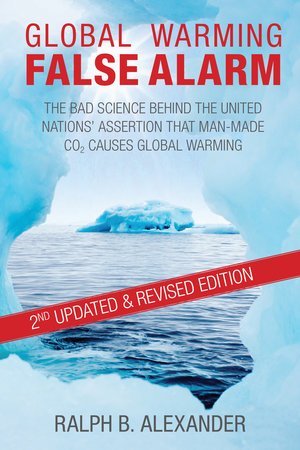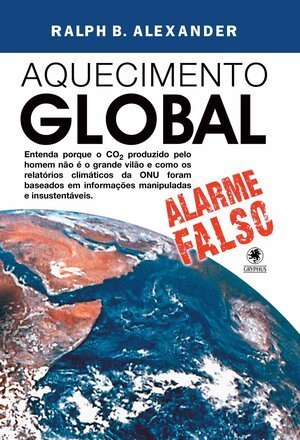Has the Mainstream Media Suddenly Become Honest in Climate Reporting?
/Not so long ago I excoriated the mainstream media for misleading the public about perfectly normal extreme weather events. So ABC News’ August 14 article headlined “Why climate change can't be blamed for the Maui wildfires” came as a shock, a seeming media epiphany on the lack of connection between extreme weather and climate change.
But my amazement was short-lived. The next day the news network succumbed to a social media pressure campaign by climate activists, who persuaded ABC News to water down their headline by adding the word “entirely” after “blamed.” Back to the false narrative that today’s weather extremes are more common and more intense because of climate change.
Nevertheless, a majority of the scientific community, including many meteorologists and climate scientists, think that climate change was only a minor factor in kindling the deadly, tragic conflagration on Maui.
As ecologist Jim Steele has explained, the primary cause of the Maui disaster was dead grasses – invasive, nonnative species such as Guinea grass that have flourished in former Maui farmland and forest areas since pineapple and sugar cane plantations were abandoned in the 1980s. Following a wet spring this year which caused prolific grass growth, the superabundance of these grasses quickly became highly flammable in the ensuing dry season. The resulting tinderbox merely awaited a spark.
Three paragraphs later, the story quotes UCLA (University of California, Los Angeles) climate scientist Daniel Swain as saying:
We should not look to the Maui wildfires as a poster child of the link to climate change.
Swain’s statement was immediately followed by another from Abby Frazier, a climatologist at Clark University in Worcester, Massachusetts, wThat spark came from the failure of Maui’s electrical utility to shut off power in the face of hurricane-force winds. Numerous instances of blazes triggered by live wires falling on dessicated vegetation or by malfunctioning electrical equipment have been reported. Just hours before the city of Lahaina was devastated by the fires, a power line was actually seen shedding sparks and igniting dry grass.
Exactly the same conditions set off the calamitous Camp Fire in California in 2018, which was ignited by a faulty electric transmission line in high winds, and demolished Paradise and several other towns. While the Camp Fire’s fuel included parched trees as well as dry grasses, it was almost as deadly as the 2023 Maui fires, killing 86 people. The utility company PG&E (Pacific Gas and Electric Company) admitted responsibility, and was forced to file for bankruptcy in 2019 because of potential lawsuits.
Despite the editorial softening of ABC News’ headline on the Maui wildfires, however, the article itself still contains a number of statements more honest than most penned by run-of-the-mill climate journalists. Four paragraphs into the story, this very surprising sentence appears:
Not only do “fire hurricanes” not exist, but climate change can't be blamed for the number of people who died in the wildfires.
The term “fire hurricanes” refers to a term used erroneously by Hawaii’s governor when commenting on the fires. ho commented that:
The main factor driving the fires involved the invasive grasses that cover huge parts of Hawaii, which are extremely flammable.
And there was more. All of which is unprecedented, to borrow a favorite word of climate alarmists, in climate reporting of the last few years that has routinely promoted the mistaken belief that weather extremes are worsening because of climate change.
Is this the beginning of a new trend, or just an isolated exception?
Time will tell, but there are subtle signs that other mainstream newspapers and TV networks may be cutting back on their usual hysterical hype about extreme weather. One of the reasons could be the IPCC (Intergovernmental Panel on Climate Change) new Chair’s urging the IPCC to “stick to our fundamental values of following science and trying to avoid any siren voices that take us towards advocacy.” There are already a handful of media that endeavor to be honest and truly fact-based in their climate reporting, including the Washington Examiner and The Australian.
Opposing any move in this direction is a new coalition, founded in 2019, of more than 500 media outlets dedicated to producing “more informed and urgent climate stories.” The CCN (Covering Climate Now) coalition includes three of the world’s largest news agencies — Reuters, Bloomberg and Agence France Presse – and claims to reach an audience of two billion.
In addition to efforts of the CCN, the Rockefeller Foundation has begun funding the hiring of climate reporters to “fight the climate crisis.” Major beneficiaries of this program include the AP (Associated Press) and NPR (National Public Radio).
Leaving no doubts about the advocacy of the CCN agenda, its website mentions the activist term “climate emergency” multiple times and includes a page setting out:
Tips and examples to help journalists make the connection between extreme weather and climate change.
Interestingly enough, ABC News became a CCN member in 2021 – but has apparently had a change of heart since, judging from its Maui article.
Next: The Sun Can Explain 70% or More of Global Warming, Says New Study





